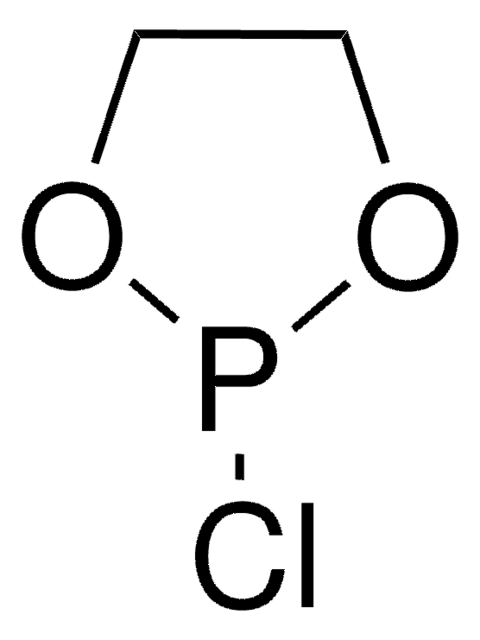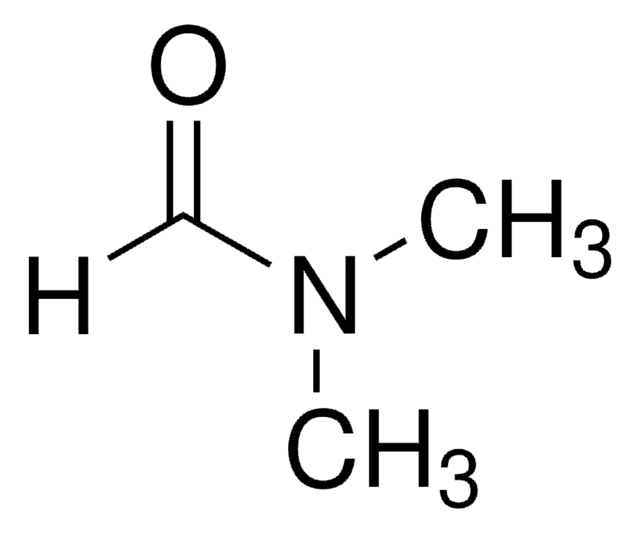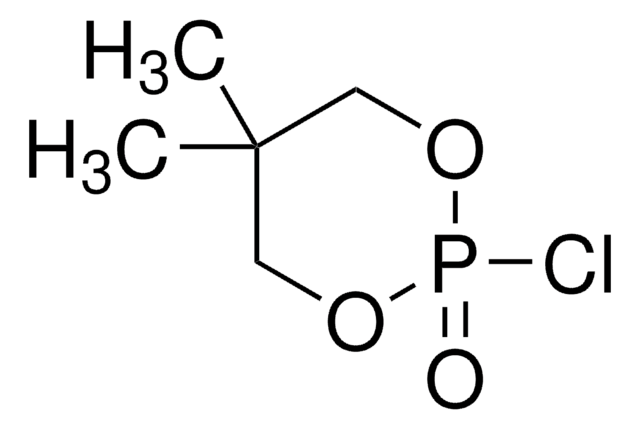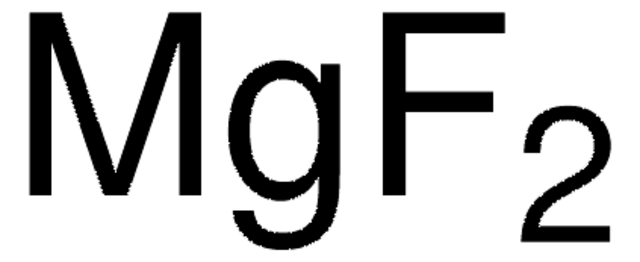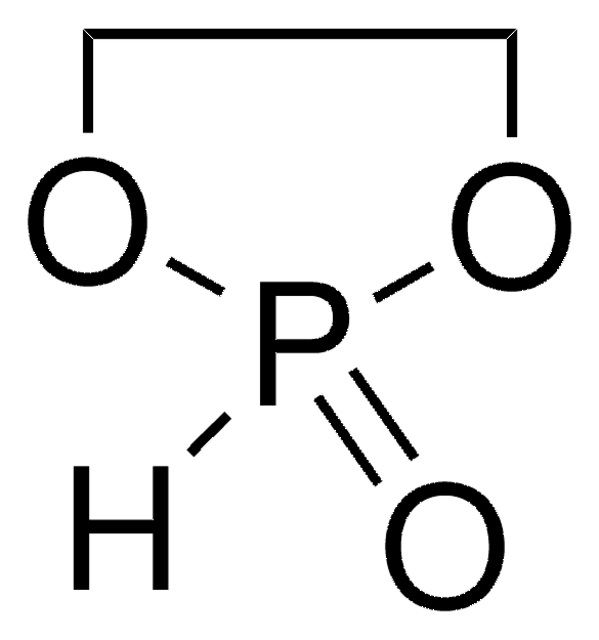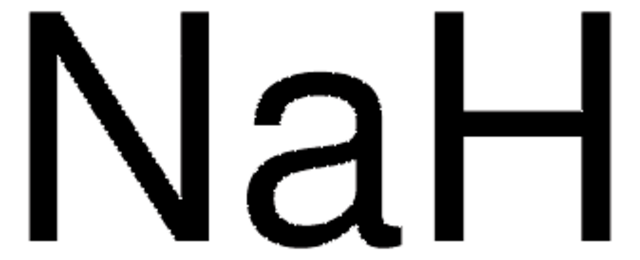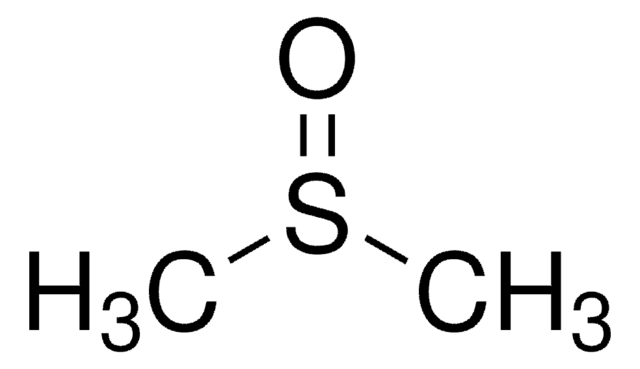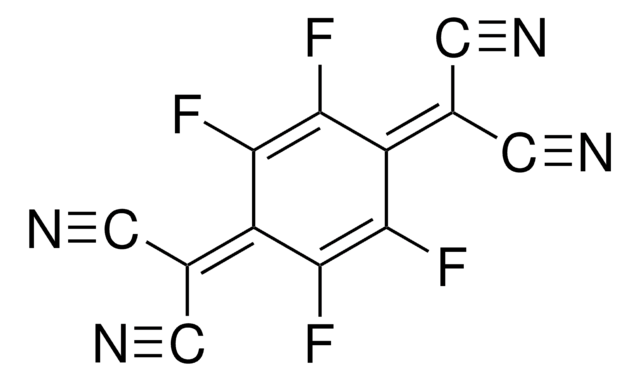377953
2-Chlor-2-oxo-1,3,2-dioxaphospholan
Synonym(e):
2-Chlor-1,3,2-dioxaphospholan-2-oxid, Ethylen-cycl.-chlorphosphat
About This Item
Empfohlene Produkte
Form
liquid
Qualitätsniveau
Verunreinigungen
<10% 2-Chloro-1,3,2-dioxaphospholane
Brechungsindex
n20/D 1.45 (lit.)
bp
89-91 °C/0.8 mmHg (lit.)
mp (Schmelzpunkt)
12-14 °C (neat) (lit.)
Dichte
1.55 g/mL at 25 °C (lit.)
Lagertemp.
−20°C
SMILES String
ClP1(=O)OCCO1
InChI
1S/C2H4ClO3P/c3-7(4)5-1-2-6-7/h1-2H2
InChIKey
SBMUNILHNJLMBF-UHFFFAOYSA-N
Verwandte Kategorien
Allgemeine Beschreibung
2-Chloro-1,3,2-dioxaphospholane 2-oxide is used in esterification reactions for cyclic phosphate synthesis, also reacts with phenyl grignard reagents.
Anwendung
- Synthesis of amino-functionalized hybrid hydrocarbon/fluorocarbon double-chain phospholipid
- Synthesis of UV-polymerizable lipids via Chabrier reaction
- Syntheses of block copolymers of poly(aliphatic ester) with clickable polyphosphoester
- Imprinting molecular recognition sites on multiwalled carbon nanotubes surface for electrochemical detection of insulin in real samples
- Synthesis of a zwitterionic silane
- Synthesis of a core-shell-corona micelle stabilized by reversible cross-linkage for intracellular drug delivery
Signalwort
Danger
H-Sätze
Gefahreneinstufungen
Eye Dam. 1 - Skin Corr. 1B
Zusätzliche Gefahrenhinweise
Lagerklassenschlüssel
8A - Combustible, corrosive hazardous materials
WGK
WGK 3
Flammpunkt (°F)
235.4 °F - closed cup
Flammpunkt (°C)
> 113 °C - closed cup
Persönliche Schutzausrüstung
Faceshields, Gloves, Goggles, type ABEK (EN14387) respirator filter
Analysenzertifikate (COA)
Suchen Sie nach Analysenzertifikate (COA), indem Sie die Lot-/Chargennummer des Produkts eingeben. Lot- und Chargennummern sind auf dem Produktetikett hinter den Wörtern ‘Lot’ oder ‘Batch’ (Lot oder Charge) zu finden.
Besitzen Sie dieses Produkt bereits?
In der Dokumentenbibliothek finden Sie die Dokumentation zu den Produkten, die Sie kürzlich erworben haben.
Unser Team von Wissenschaftlern verfügt über Erfahrung in allen Forschungsbereichen einschließlich Life Science, Materialwissenschaften, chemischer Synthese, Chromatographie, Analytik und vielen mehr..
Setzen Sie sich mit dem technischen Dienst in Verbindung.